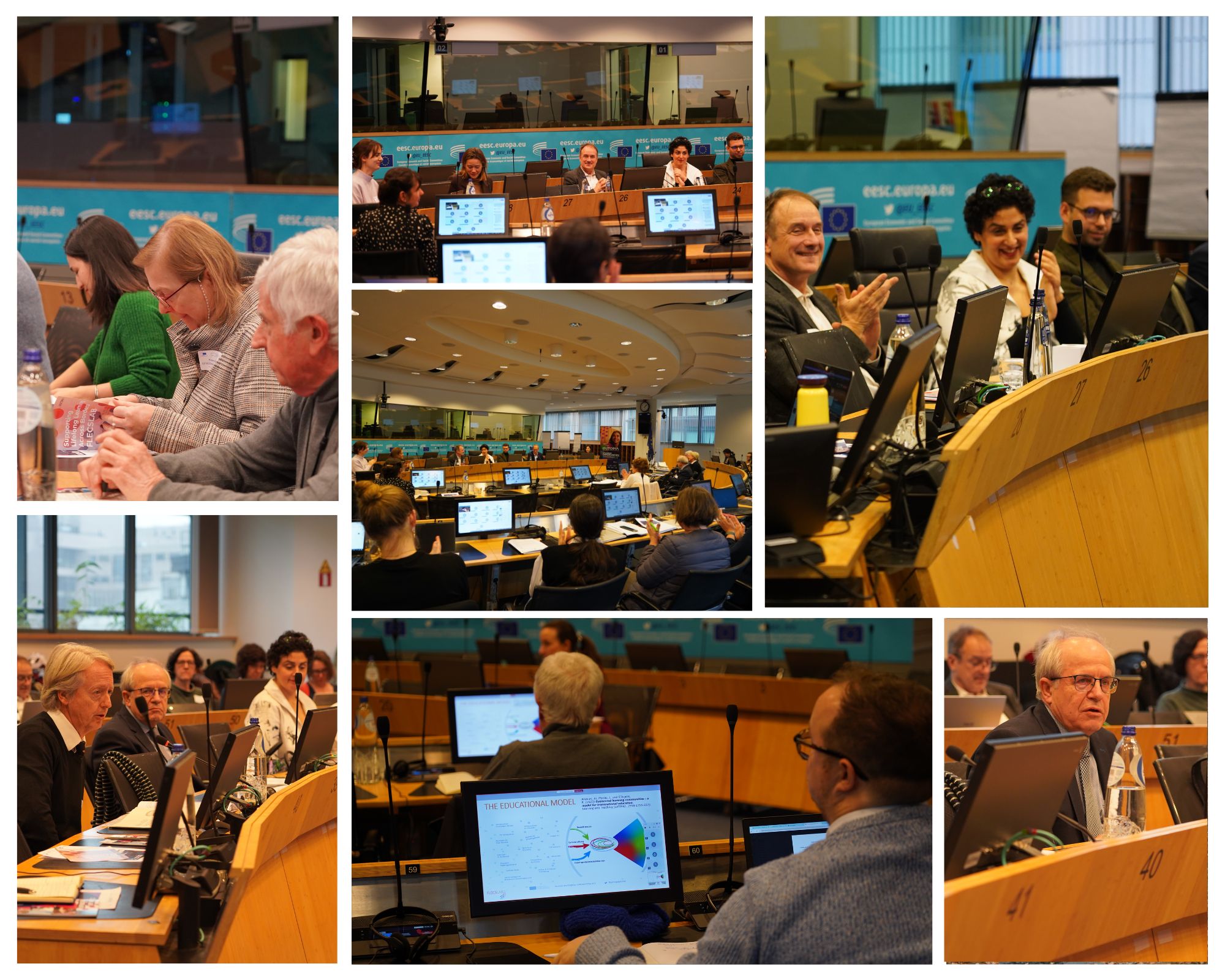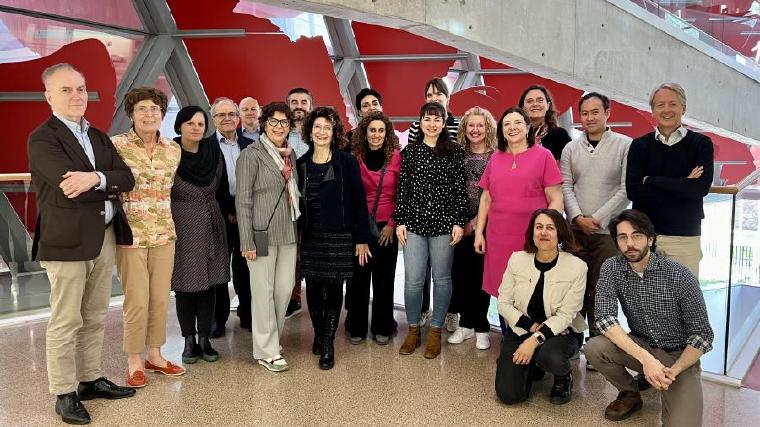On 12 December 2024, in collaboration with the European Economic and Social Committee, the FLECSLAB project team organised a policy workshop in Brussels at the European Economic and Social Committee (EESC), entitled, “Bridging the Gap Between Science and Lifelong Learning - The EUTOPIA FLECSLAB Case.”
The FLECSLAB project team highlighted for a selected audience some key findings n the field of lifelong learning at universities and engaged in discussions regarding future actions with prominent stakeholders. The insights gained from the FLECSLAB experience were formulated into policy guidelines aimed at academics, industry, and public sector partners. Additionally, valuable resources were introduced to support university practitioners and policymakers in the development of lifelong learning pedagogies, encapsulated in the Lifelong Learning Toolbox, as well as sustainable provision strategies outlined in the Lifelong Learning Business Model.
Nicoletta Merlo, Head of Youth Policies at CISL, emphasised the significance and pertinence of the workshop's content. Following her, Jo Angouri (University of Warwick) articulated how connected learning facilitates the conditions necessary for lifelong learning (LLL). Rosette S’Jegers (Vrije Universiteit Brussel - VUB), then presented the EUTOPIA communities as a practical case study for LLL implementation. The FLECSLAB panel was moderated by Karin Vanderkerken, the Vice-Rector for Internationalisation at VUB.
A notable output of the project was introduced by Christopher Tulloch (Pompeu Fabra University-Barcelona), who unveiled the toolkit containing guidelines for academics and public sector partners engaged in lifelong learning, as well as the
LLL toolbox, which features specialised instruments designed for higher education institutions catering to non-traditional learners.
Ivan Svetlik (University of Ljubljana) further contributed with a business model for lifelong learning, identifying three ecosystems that have been established as sustainable academic offerings in collaboration with stakeholders.
The workshop included two panel discussions. The first was chaired by Brikena Xhomaqi, Director of the Lifelong Learning Platform, featuring panellists Wim Gabriels, Director of the Erasmus Student Network (ESN), Angelova Nora, President of the Belgian European Student Union (ESU) and member of the EEA Executive Committee, Gina Ebner, Secretary General of the European Association for the Education of Adults (EAEA), and Patrice Chazerand from Digital Europe.
The second panel discussion, focusing on the European policy landscape, was chaired by Jo Angouri and included contributions from Koen Nomden, Head of Sector DG for Employment, Social Affairs, and Inclusion at the European Commission, Michael Gaebel from the European Association of Universities (EUA), and Jakub Grodecki, Policy and Project Manager at the European Association of Institutions in Higher Education (EURASHE).
The event concluded with reflections on the next steps forward, setting a positive trajectory for the future of lifelong learning. It becomes clear that understanding this matter requires a multifaceted approach, integrating recognition and funding. The ongoing conversation launched by EUTOPIA through the FLECSLAB project will contribute for informed decision-making in the European universities Alliances.
Discover the FLECSLAB project


